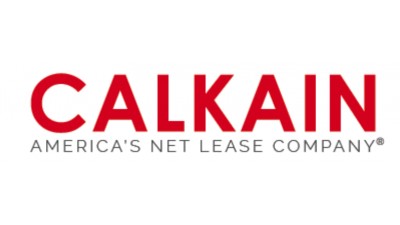Calkain's New Capital Markets Group Aims To Support A Changing Investment Landscape

Investors’ needs are changing. A steady economic expansion, changing tax laws and new investment structures are rapidly transforming the investment landscape.
We caught up with Calkain Cos. CEO and President Jonathan Hipp this week as he announced the launch of Net Capital Markets Group, a new division focusing on transactions of $15M to $100M.
“We are seeing the needs of many of our clients change profoundly,“ Hipp said. “NetCMG will help its larger, institutional and private market clients with their financial needs, including investment sales and debt and equity placement.
In addition to providing debt and equity services, the division partners with a wide range of clients to complete sale-leaseback transactions. NetCMG has worked with public and private companies to establish a strategic plan that maximizes the real estate value while aligning with a company’s corporate objectives.
Calkain recently completed a $35.5M credit tenant lease financing transaction in partnership with Gem Equity for the Children’s Hospital in Glenarden, Maryland, and will bring a $65M sale-leaseback opportunity to market in the next few weeks. Another $100M in deals is coming this summer.
“Whether straightforward net lease investments or more complicated institutionalized capital needs, our aim is to provide superior executions for our clients in a seamless manner,” Hipp said. “We will not dilute our focus on single-tenant, net-lease investing — it’s what we know and it’s where we excel. It is also where Calkain has completed $12B in sales since its inception in 2005. We are, however, utilizing a team of professionals that can expand our expertise so that we may provide a seamless experience for our clients whose needs have evolved.”
When it comes to investing in commercial property, companies have several financing options available to them. While banks offer a more traditional financing option, credit is conservatively structured and has become more expensive since the recession. Regulations like Dodd Frank have made traditional loans harder to find.
This has caused challenges for middle-market companies looking for financing at affordable interest rates. Owners and developers are looking at CTL financing because it allows them to lock in 100% of construction costs while providing a non-recourse loan.
Now, existing property owners are beginning to explore sale-leaseback arrangements as an alternative financing option. A sale-leaseback occurs when a company sells the land and building being used for its current building operations while leasing it back from a buyer through a long-term lease.
This strategy provides companies an opportunity to use net proceeds of a transaction to produce higher yields. This allows business owners to receive higher returns by allocating capital to other uses, including expanding company operations, corporate mergers and acquisitions and debt reduction.
“Sale-leasebacks can be useful for small- to middle-market companies with a revenue anywhere from $10M to $1B,” Hipp said. “It is an attractive option because it allows these companies to set their own lease terms, and retain operational control of the asset.”
The commercial real estate industry has seen a growing interest in sale-leaseback transactions over the last few years. In 2015, sale-leaseback transaction volume reached $11.6B, a $4B increase from 2007.
Businesses should consider a sale-leaseback transaction when they need capital to grow, Hipp said. As the credit market tightens, many businesses struggle to achieve their growth objectives. They are often too close to their borrowing limits to acquire another company or expand their resources. A sale-leaseback gives businesses an opportunity to turn an asset into capital.
There is also a tax benefit to these arrangements. Through sale-leaseback financing, a business lessee can deduct its total lease payment as an expense for taxes.
“As the market changes and interest rates fluctuate, it is becoming evident that the commercial real estate industry needs to begin delivering client services that focus on unlocking the value of real estate assets,” Hipp said. “Sale-leaseback transactions can help companies realize additional financing opportunities, and it will only continue to grow in popularity.”
This feature was produced in collaboration between Bisnow Branded Content and NetCMG. Bisnow news staff was not involved in the production of this content.

